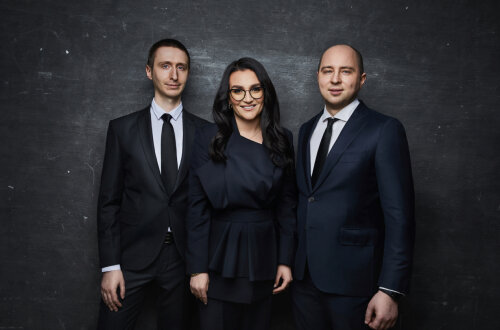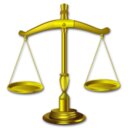Best Sexual Harassment Lawyers in Republic of Lithuania
Share your needs with us, get contacted by law firms.
Free. Takes 2 min.
Or refine your search by selecting a city:
List of the best lawyers in Republic of Lithuania
About Sexual Harassment Law in Republic of Lithuania:
Sexual harassment is a serious issue in the Republic of Lithuania and is prohibited by law. It is defined as unwanted actions of a sexual nature that violate the dignity of a person, create an intimidating, hostile, degrading, humiliating, or offensive environment for that person. Victims of sexual harassment have legal rights and protections under Lithuanian law.
Why You May Need a Lawyer:
If you have experienced sexual harassment in the workplace, at school, or elsewhere, you may need a lawyer to help you understand your legal rights and options. A lawyer can assist you in filing a complaint, negotiating a settlement, or taking legal action against the perpetrator or the institution where the harassment occurred. Additionally, a lawyer can provide you with guidance and support throughout the legal process.
Local Laws Overview:
In the Republic of Lithuania, sexual harassment is prohibited by the Law on Equal Treatment, which prohibits discrimination on various grounds, including sex. The law provides protection against sexual harassment in the workplace, educational institutions, and other settings. Victims of sexual harassment can file a complaint with the Equal Opportunities Ombudsman's Office or seek legal assistance from a lawyer or other legal professional.
Frequently Asked Questions:
Q: What should I do if I experience sexual harassment in the workplace?
A: If you experience sexual harassment in the workplace, you should document the incidents, report the harassment to your employer or HR department, and seek legal advice from a lawyer.
Q: Can I be fired for reporting sexual harassment?
A: No, it is illegal for an employer to retaliate against an employee for reporting sexual harassment. If you are fired or face retaliation, you may have legal recourse.
Q: How long do I have to file a complaint for sexual harassment?
A: In Lithuania, there is a statute of limitations for filing a complaint for sexual harassment. It is important to act promptly and seek legal advice as soon as possible.
Q: What damages can I recover in a sexual harassment case?
A: Victims of sexual harassment may be entitled to damages for emotional distress, lost wages, medical expenses, and other losses caused by the harassment.
Q: Is there a legal definition of sexual harassment in Lithuania?
A: Yes, sexual harassment is defined by law as unwanted actions of a sexual nature that violate the dignity of a person and create an intimidating, hostile, degrading, or offensive environment.
Q: Can I file a criminal complaint for sexual harassment?
A: In some cases, sexual harassment may constitute a criminal offense under Lithuanian law. You should seek legal advice to determine the best course of action.
Q: How can I document incidents of sexual harassment?
A: You can document incidents of sexual harassment by keeping a journal, saving emails or messages, and gathering any other evidence that supports your case.
Q: Can I remain anonymous when reporting sexual harassment?
A: It may be possible to report sexual harassment anonymously, but it is generally advisable to provide your name and contact information to aid in the investigation and legal process.
Q: What should I do if I witness sexual harassment happening to someone else?
A: If you witness sexual harassment happening to someone else, you should report it to the appropriate authorities or encourage the victim to seek legal assistance.
Q: How can a lawyer help me with a sexual harassment case?
A: A lawyer can provide legal advice, represent you in negotiations or legal proceedings, and help you understand your rights and options for addressing sexual harassment.
Additional Resources:
If you need legal assistance with a sexual harassment case in Lithuania, you can contact the Equal Opportunities Ombudsman's Office or the Lithuanian Bar Association for referrals to lawyers who specialize in this area of law. Additionally, the Ministry of Social Security and Labour provides information and resources on workplace harassment and discrimination.
Next Steps:
If you believe you have been a victim of sexual harassment in the Republic of Lithuania, it is important to seek legal advice as soon as possible. Contact a lawyer or the Equal Opportunities Ombudsman's Office to discuss your rights and options for addressing the harassment. Remember, you are not alone, and there are legal protections in place to support you.
Lawzana helps you find the best lawyers and law firms in Republic of Lithuania through a curated and pre-screened list of qualified legal professionals. Our platform offers rankings and detailed profiles of attorneys and law firms, allowing you to compare based on practice areas, including Sexual Harassment, experience, and client feedback.
Each profile includes a description of the firm's areas of practice, client reviews, team members and partners, year of establishment, spoken languages, office locations, contact information, social media presence, and any published articles or resources. Most firms on our platform speak English and are experienced in both local and international legal matters.
Get a quote from top-rated law firms in Republic of Lithuania — quickly, securely, and without unnecessary hassle.
Disclaimer:
The information provided on this page is for general informational purposes only and does not constitute legal advice. While we strive to ensure the accuracy and relevance of the content, legal information may change over time, and interpretations of the law can vary. You should always consult with a qualified legal professional for advice specific to your situation.
We disclaim all liability for actions taken or not taken based on the content of this page. If you believe any information is incorrect or outdated, please contact us, and we will review and update it where appropriate.
Browse sexual harassment law firms by city in Republic of Lithuania
Refine your search by selecting a city.
















